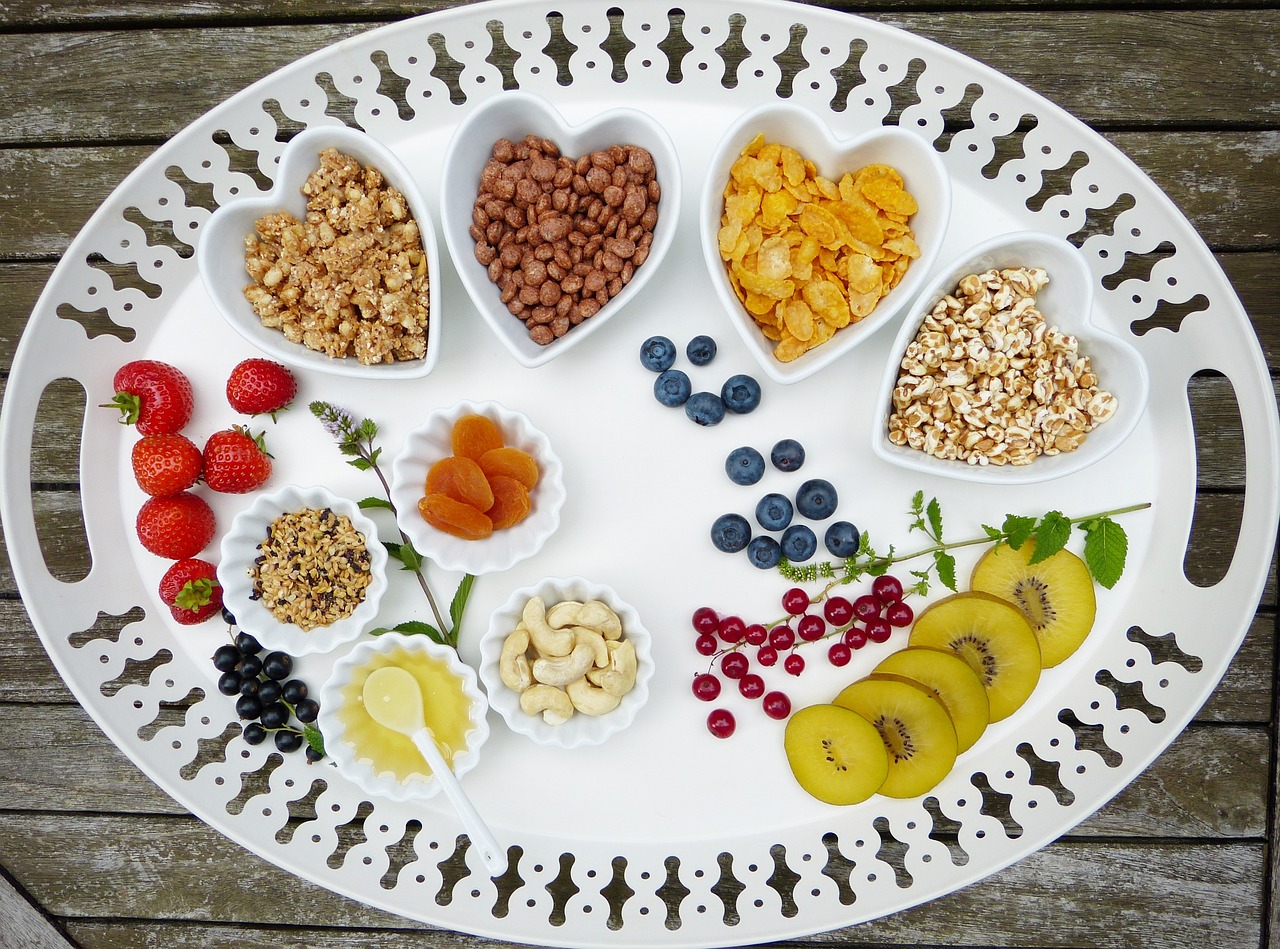Why Nutrition is important for health ?
Nutrition is essential for health because it provides the body with the necessary nutrients it needs to function properly. Here are several key reasons why nutrition is important:
Supports Growth and Development: Proper nutrition is vital during childhood, adolescence, pregnancy, and even in older age to ensure the body develops and grows optimally. Nutrients like protein, vitamins, and minerals are essential for cell growth and development.
Boosts Immune Function: A balanced diet strengthens the immune system, helping the body fight off infections, diseases, and illnesses. Nutrients like vitamin C, vitamin D, and zinc play a crucial role in maintaining a healthy immune response.
Promotes Healthy Digestion: A well-balanced diet, rich in fiber, helps maintain good digestion and prevents problems like constipation and bloating. Fiber also supports gut health, which is linked to overall well-being.
Energy and Vitality: The food you eat provides energy in the form of calories, which the body uses for physical activity and essential functions. Carbohydrates, fats, and proteins are the primary sources of energy.
Maintains Healthy Weight: Proper nutrition helps regulate body weight by ensuring that the body receives the right balance of nutrients without excess calories. It also helps prevent or manage conditions like obesity, which can lead to serious health issues like heart disease and diabetes.


SOURCES OF NUTRITION
Nutrition comes from a variety of food sources that provide essential nutrients like carbohydrates, proteins, fats, vitamins, and minerals. Here are the main sources of these nutrients.
. Carbohydrates
Carbohydrates are the body’s primary source of energy. They are found in:
- Grains: Rice, wheat, oats, barley, quinoa, etc.
- Fruits: Apples, bananas, berries, oranges, etc.
- Vegetables: Potatoes, corn, peas, sweet potatoes, etc.
- Legumes: Beans, lentils, chickpeas, etc.
- Dairy: Milk, yogurt (contain lactose, a natural sugar)
2. Proteins
Proteins are essential for muscle repair, growth, and overall body function. They are found in:
- Animal sources: Chicken, beef, pork, fish, eggs, and dairy products (milk, cheese, yogurt).
- Plant-based sources: Lentils, beans, peas, tofu, tempeh, quinoa, nuts, and seeds.
- Nuts and seeds: Almonds, walnuts, chia seeds, flaxseeds, etc.
3. Fats
Healthy fats are important for brain function, hormone production, and energy storage. They are found in:
- Healthy oils: Olive oil, avocado oil, coconut oil, etc.
- Nuts and seeds: Almonds, walnuts, chia seeds, sunflower seeds, etc.
- Fatty fish: Salmon, mackerel, sardines, etc. (rich in omega-3 fatty acids).
- Avocados: A good source of monounsaturated fats.
- Dairy: Full-fat cheese, butter, cream, etc. (in moderation).
4. Vitamins
Vitamins are essential for immune function, energy production, and cell repair. They are found in:
- Vitamin A: Carrots, sweet potatoes, spinach, kale, and other orange or dark leafy vegetables.
- Vitamin C: Citrus fruits (oranges, lemons), strawberries, bell peppers, broccoli, and tomatoes.
- Vitamin D: Sunlight exposure, fortified dairy, fatty fish, and eggs.
- Vitamin E: Nuts, seeds, spinach, and broccoli.
- Vitamin K: Kale, spinach, broccoli, and Brussels sprouts.
5. Minerals
Minerals help regulate bodily functions such as bone health, nerve function, and fluid balance. They are found in:
- Calcium: Dairy products (milk, cheese, yogurt), leafy greens (spinach, kale), tofu, fortified plant milks (almond milk, soy milk).
- Iron: Red meat, poultry, fish, lentils, beans, tofu, spinach, and fortified cereals.
- Magnesium: Nuts (almonds, cashews), seeds, leafy greens, whole grains, and legumes.
- Potassium: Bananas, potatoes, oranges, tomatoes, and spinach.
- Zinc: Meat, shellfish, legumes, seeds, and nuts.

How to fix 5 common eating problems
Here are solutions to five common eating problems that many people face:
1. Overeating
Overeating can lead to weight gain, digestive issues, and a lack of energy. It often occurs due to emotional eating, stress, or eating too quickly.
How to Fix It:
- Mindful Eating: Pay attention to what you’re eating and how it makes you feel. Chew slowly and enjoy your food, which can help you recognize when you’re full.
- Portion Control: Use smaller plates and serve appropriate portions to avoid eating too much.
- Avoid Emotional Eating: Find healthier ways to cope with emotions, like journaling, exercise, or meditation, instead of turning to food.
- Eat Regular Meals: Skipping meals can lead to overeating later. Eat balanced meals throughout the day to maintain your hunger levels.
2. Skipping Meals
Skipping meals, especially breakfast, can slow down metabolism, make you overeat later, and lead to nutrient deficiencies.
How to Fix It:
- Establish a Routine: Plan meals and snacks throughout the day, even if it’s something small. This can help prevent skipping meals.
- Prepare Simple Meals: If you’re pressed for time, keep easy-to-prepare meals on hand like smoothies, boiled eggs, or whole-grain toast with avocado.
- Healthy Snacks: If you’re not hungry for a full meal, keep healthy snacks like nuts, yogurt, or fruit handy to maintain energy levels.
3. Craving Unhealthy Foods
Many people struggle with cravings for sugary, salty, or fatty foods, often leading to unhealthy eating habits.
How to Fix It:
- Balanced Diet: Eat nutrient-dense foods that satisfy hunger and stabilize blood sugar levels, including whole grains, lean proteins, healthy fats, and fiber.
- Stay Hydrated: Thirst can often be mistaken for hunger. Drink enough water throughout the day.
- Healthy Substitutes: When you crave sweets, opt for fruits or yogurt. If you’re craving salty snacks, try roasted chickpeas or nuts.
- Regular Meals: Eating regular meals prevents extreme hunger, which can lead to cravings for junk food.
4. Eating Too Late
Eating late at night can disrupt sleep and digestion, and often leads to mindless or excessive eating.
How to Fix It:
- Eat Earlier: Try to have your last meal at least 2-3 hours before bed to give your body time to digest the food.
- Light, Balanced Snacks: If you’re hungry at night, choose a light snack, such as a small piece of fruit or a handful of nuts.
- Establish a Routine: Try to set regular eating times during the day so you’re not excessively hungry at night, which can trigger late-night snacking.
5. Lack of Variety in Diet
Eating the same foods regularly can lead to nutrient deficiencies and a lack of motivation to stick to a healthy eating routine.
How to Fix It:
- Experiment with New Foods: Try incorporating new fruits, vegetables, grains, and proteins into your meals. This will not only provide different nutrients but also keep your meals interesting.
- Plan Meals Ahead: Create a weekly meal plan that includes a variety of foods to ensure balanced nutrition.
- Batch Cooking: Preparing meals in advance can help you include diverse ingredients throughout the week without feeling rushed.
By addressing these common eating problems, you can improve your relationship with food, enhance your health, and make it easier to maintain a balanced, sustainable diet.



